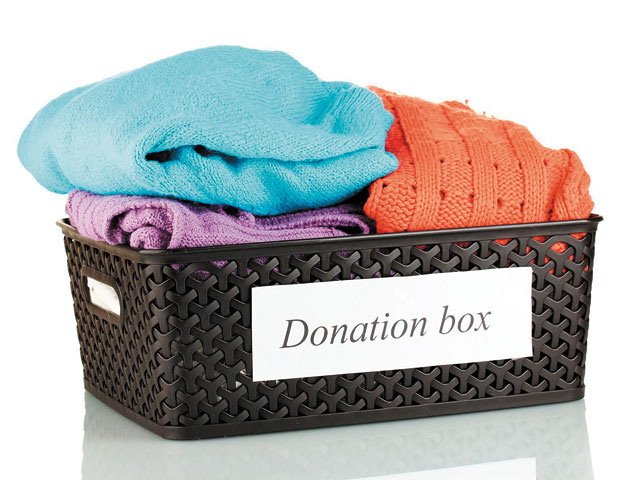Minimizing the Mess
Taking the time to clear clutter is a rewarding process, but living mess-free doesn’t stop there. Here are ways to avoid amassing more unwanted goods
Dear Readers, I hope you were able to join us these past few weeks to learn how to declutter your home and can now feel a difference. Today I want to close the series by addressing recycling and ways to prevent clutter buildup or “clutter creep,” as I call it. We can all use these tips to avoid getting caught up in the further acquisition of unnecessary things.
In my experience, preventing clutter creep is easier than clearing clutter. As someone who has overcome clutter, I know it is possible for anyone to do it. Hopefully, you will recognize the value of preventing clutter creep and make a daily conscious effort to keep clutter at bay.
Deal with things as they arrive
Procrastination can lead to clutter. A lot of clutter is created by things we fail to get rid of in the moment, even though we know we don’t need or aren’t attached to them. We make piles and promise ourselves we’ll get to them, but rarely do so in a timely manner.
Before putting something in a closet or on a shelf, drop what is not needed into a wastebasket. Put wastebaskets in convenient locations around your home and use them regularly. Throw junk mail away as you are looking through it, and think twice before you save another shopping bag (do you really need to add another empty bag to the closet full of empty bags you already have?).
Don’t second guess yourself
When you feel like throwing out an empty jar, an item that is old and worn, or a broken unusable item, don’t think twice about it; do it! You will save space and future clutter clearing.
Buy less
Adopting the daily mindset to buy less will help you avoid clutter. Think before you buy, especially when something is on sale or cheap. It might be a good deal, but do you need it? If not, you are buying clutter. Don’t even bring it into your home!

Shop from a list
Don’t shop “just to shop,” as you’ll inevitably end up getting something you don’t need, which will eventually end up as clutter. Shop only when you need something, take a list and stick to it.
One item in — one item out
If you bring home a new item, make sure you get rid of an old one. I have a donation bag on the floor of both my clothing and hall closets. Any time something new comes in, especially if it is replacing something old, I put the old item in the bag. When the bag is full, I take it to a donation center. This has worked well for me for the last 6 years, and I encourage you to try it.
Deal with clutter cravings
In the same way that you change your eating habits by avoiding unhealthy snacks and foods you crave, keep your clutter from creeping back in by avoiding garage sales or thrift stores that sell things “cheap.” These establishments do not serve the purpose of keeping your home free from clutter. If you do go to these establishments, make a list and buy only those things that are on it.
Say “no” to freebies
We all love the idea of getting something for free, but if that item doesn’t truly have a value to you, then it is probably clutter. It will work against you as you work to make your home more efficient.
How do I recycle or donate?
You may find things in your home that you don’t need, never liked, don’t know what to do with, or just don’t want anymore, and they may or may not be in good enough shape to donate. In these cases, throwing them away adds to environmental pollution. Recycling is an alternative to dumping things in the trash. If you are environmentally conscious or have a naturally thrifty nature, below are some suggestions for what to do with the things you no longer want, need, like, or know what to do with.
• Wire hangers. Take them back to your dry cleaners
• Books. Donate them to a local library or used book store
• “Techno trash,” such as promo CDs, DVDs. Send to www.cdrecyclingcenter.org. Shipping is free.
• Cell phones. Many service providers will take them back.
• Foreign change. UNICEF has a “change for good” program if you travel and have change you will never use again. www.unicefusa.org
• Moving boxes. After a big move, post an ad on Craigslist for free, and give someone else the cardboard boxes.
• Pet stuff. Donate it to your local animal shelter along with blankets, towels, and bathroom rugs you no longer want.
• Video games and devices. Send to www.getwellgamers.org. They will send them to hospitals for kids to play with.
• Business clothing. Donate to our local “Dress for Success” program, www.dressforsuccess.org
In closing
I hope that you are able to implement some of the tips above. Next week, I’ll get back to answering your questions, which have been piling up in my inbox! Thank you for all of your feedback. Questions and feedback about Go Ask Alice are always welcome. Write me at smile@yourhappinessu.com.
Alice Inoue is the founder and Chief Happiness Officer at Happiness U, a friendly and warm educational establishment at Gentry Pacific Center on Nimitz Highway. At Happiness U, one can learn how to be happy, a subject you won’t find in a traditional school. Happiness U offers classes such as feng shui 101, clutter clearing plan 101, positive mindset 101, happiness 101 and more. Visit www.YourHappinessU.com.